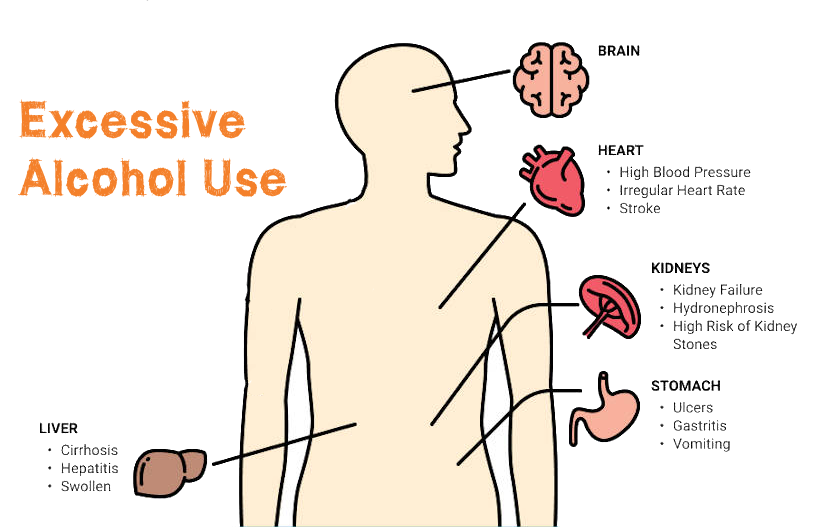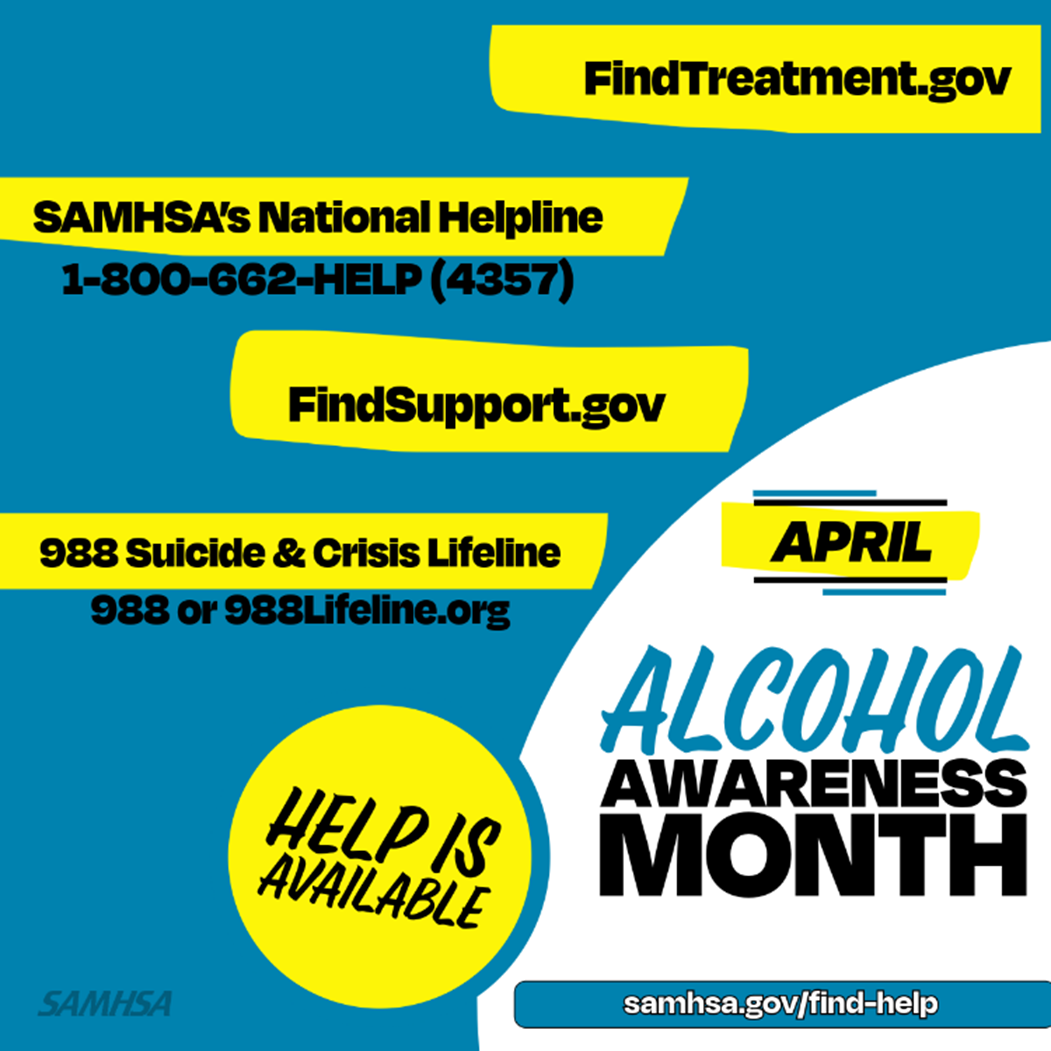Alcohol Awareness

April is Alcohol Awareness Month. This month is dedicated to increasing public knowledge and awareness of alcohol, alcohol related issues, and reducing stigma.
Key Facts:
- Alcohol is the most common substance used among people ages 12 and older in the United States.
- Excessive alcohol use is a leading preventable cause of death in the United States.
- About 178,000 people die from excessive drinking each year. This is on average 488 deaths per day.
- The deaths occur from both drinking alcohol over several years or drinking too much on one occasion.
According to the 2023 National Survey on Drug Use and Health (NSDUH), 224.3 million people ages 12 and older reported that they drank alcohol at some point in their lifetime. Over 117 million people ages 12 and older reported they drank in the last year.
Drinking alcohol, especially excessive alcohol use, has risks. There is a risk for accidents, injuries, and engaging in unsafe behaviors. Alcohol use may increase the risk of developing several cancers, including breast, throat, liver, and colorectal cancers. This risk increases with excessive alcohol use. In the United States, more than 20,000 people die from alcohol-related cancers every year.
Excessive alcohol use

Excessive alcohol use can also lead to other diseases such as:
- High blood pressure
- Heart disease
- Liver disease
- Stroke
- Alcohol use disorder, affecting both physical and mental health
- Digestive problems
- Weaker immune system, which can increase your chances of getting sick
Alcohol use can impact a person’s overall well-being. It can also impact a person’s mental health condition, such as depression and anxiety. Alcohol use also has an impact on a person’s social life. It can affect a person’s relationships with their friends and family. It can cause issues at school or work.
If you are a healthy adult and choose to drink, it is recommended women should have one drink or less in a day. Men should have two drinks or less in a day. This helps lessen the risk of developing health conditions related to alcohol.
The 2020–2025 United States Dietary Guidelines for Americans states some people should not drink alcohol. It’s best not to drink alcohol at all if you are: 1
- Taking medications that interact with alcohol
- Have a medical condition which can be made worse by drinking
- Are under the age of 21, the minimum legal drinking age in the United States
- In recovery from alcohol use disorder (AUD) or are unable to control the amount you drink
- Pregnant or might be pregnant

What is Excessive Drinking/Alcohol Use?
Excessive drinking includes binge drinking, heavy drinking, underage drinking, and drinking during pregnancy.
- Binge Drinking is defined as four or more drinks on one occasion for a woman and five or more drinks on one occasion for a man.
- Heavy Drinking is defined as four or more drinks in one day or eight or more drinks in a week for a woman and five or more drinks in a day or 15 or more drinks in a week for a man.
We understand this is a lot of information to share. If you are worried that you or someone you love may be abusing alcohol, here are some signs you may be drinking too much:
- You drink more or longer than you planned.
- You try to drink less or stop but you can’t.
- To get the effect you want from alcohol you need to drink more than you once did.
- You keep drinking even though it makes you feel sad, worried, or worsens a health problem.
- Loved ones or trusted friends have made comments about your drinking.
- You spend a lot of time drinking, thinking about alcohol or getting over being sick from drinking.
- You find that drinking interferes with daily activities, family, friends, or work.
- You have or had legal problems due to drinking.
- You have experienced symptoms of withdrawal when you don’t drink. These can include shakiness, sweating, tremors, headaches, anxiety, irritability, and/or insomnia.
Everyone needs help sometimes. Help is available. If you have concerns about your drinking, you can talk with your health care provider. If you are on Medicaid or are uninsured, you can call our Member and Recipient Service Line at 1-877-685-2415. There are Medicaid and state-funded* services available to help.
State funds are not an entitlement but are based on the availability of funding that Trillium receives from the North Carolina Department of Health and Human Services (NCDHHS).
